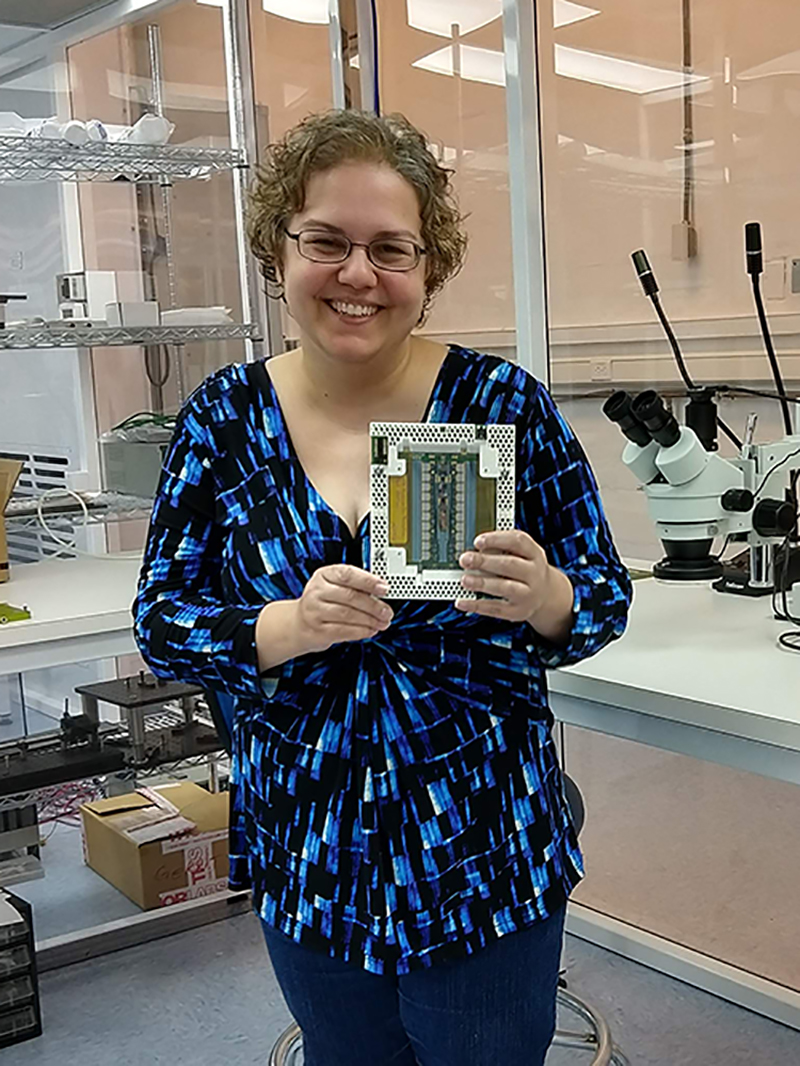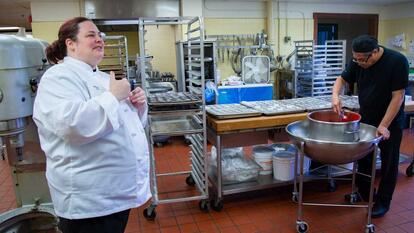Catherine Nicoloff DS ’19 Awarded the 2018 Barry Goldwater Scholarship for Physics Research

Catherine Nicoloff DS ’19 has been awarded a 2018 Barry Goldwater Scholarship, which supports outstanding undergraduate students by covering the cost of tuition, fees, books, and room and board up to a maximum of $7,500 per year.
“Having a Goldwater Scholar and an Honorable Mention is a significant tribute to the remarkable quality not only of our students but also to the strength of undergraduate teaching and research in STEM fields at Wellesley,” said Kate Dallinger, fellowships program director for Wellesley Career Education. Wellesley student Anna Farrell-Sherman ’19 received an honorable mention for the Goldwater Scholarship and plans to pursue research in computer science and biology at a university.
 Nicoloff, a physics major, credits her father with inspiring her early interest in scientific research.
Nicoloff, a physics major, credits her father with inspiring her early interest in scientific research.
“When I was a very young child, he didn't give me gendered toys,” said Nicoloff, who is also a Davis Scholar who transferred to Wellesley from Massasoit Community College in Brockton, Mass. “He gave me a microscope and a telescope and he taught me how to use them.”
Nicoloff and her father hiked in the Mojave Desert where they explored nature and identified rocks and wildlife. “He encouraged me to participate in scientific inquiry and showed me, a five-year old, that science was accessible to me.”
The mission of the Goldwater Foundation and its scholarship program is to help develop the nation’s next generation of researchers in the natural sciences, mathematics and engineering, by awarding scholarships to sophomore and junior college students who intend to pursue research careers in these fields. The scholarship is awarded on the basis of past and current academic performance and/or research experience and of exceptional promise to pursue an interesting and valuable STEM research career after graduation.
Nicoloff said she received additional support and encouragement from James Battat, associate professor of physics, who invited her to join his lab in 2016.
“Catherine came to us with a wealth of computational and experimental physics experience,” Battat said. “She works largely autonomously, and is a very capable experimentalist. I happily entrust her with critical-path research on a regular basis.”
Nicoloff aims to go on to earn her Ph.D. in physics as well, and work in research at a national laboratory.
“Through [Professor Battat], my research interests have slowly honed in on the physics of particle detection, which is an intersection between theoretical physics, nuclear and particle physics, and engineering,” she said. “I'm too hands-on to ever be happy with pure theory, and I'm too intrigued by the physics underlying the world to ever be happy with pure technical work, so this little niche seems like a good fit for me.”
Nicoloff has spent the last two summers working at Brookhaven National Laboratory, a multipurpose research institution funded primarily by the U.S. Department of Energy’s Office of Science and located on the center of Long Island, New York.
Photo: Catherine Nicoloff DS ’19 shows off a silicon detector module in a lab at Brookhaven National Lab on Long Island where she has been conducting research, which has furthered her interest in devoting her career to physics research.



